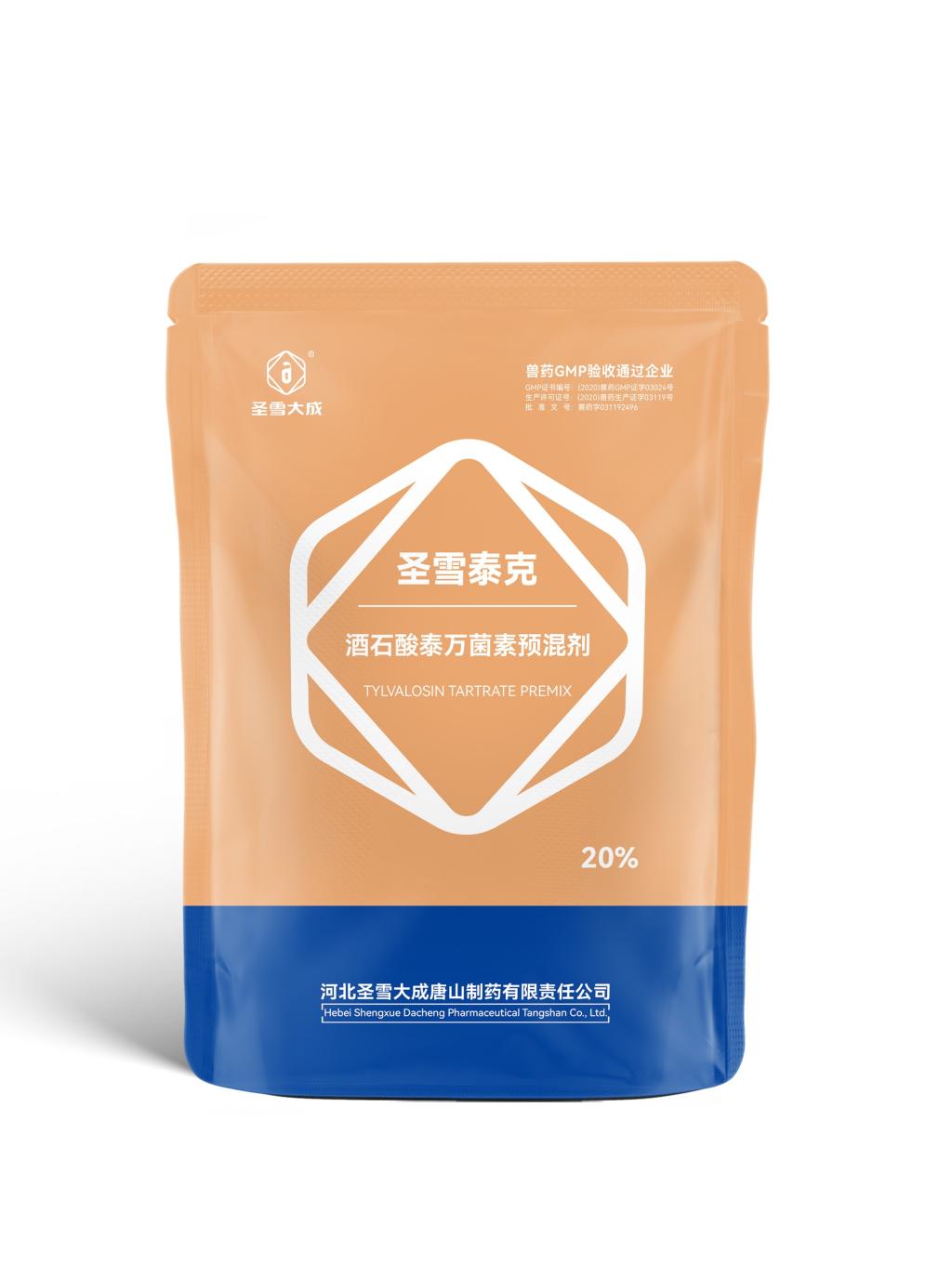Tel:+8618231198596

News
 CONTACT
CONTACT
 CONTACT
CONTACT
- Linkman:Linda Yao
- Tel: +8618231198596
- Email:linda.yao@dcpharma.cn
- Linkman:CHARLES.WANG
- Department:Overseas
- Tel: 0086 0311-85537378 0086 0311-85539701
News
Farmers recognize the importance of sustainable practices with tylvalosin tartrate premix usage.
TIME:2024-09-02
Understanding Tylvalosin Tartrate Premix
Tylvalosin tartrate is a macrolide antibiotic used in veterinary medicine, particularly for treating and preventing bacterial infections in livestock. When administered as a premix, it is mixed with animal feed to ensure consistent dosing and effective treatment. Unlike some antibiotics that are overused for growth promotion, tylvalosin tartrate is prescribed for specific therapeutic purposes, reflecting a more targeted and responsible approach to antibiotic use.
Sustainable Practices in Tylvalosin Tartrate Usage
Targeted Application
Farmers are increasingly adopting a targeted application strategy for tylvalosin tartrate. Rather than using antibiotics prophylactically across entire herds or flocks, they are focusing on treating specific animals or groups that show signs of infection. This approach minimizes the overall use of antibiotics, reducing the selective pressure that can lead to the development of antibiotic-resistant bacteria.
Veterinary Oversight
Recognizing the importance of professional guidance, farmers are working closely with veterinarians to ensure the appropriate use of tylvalosin tartrate. Veterinary oversight includes diagnosing the need for antibiotic treatment, prescribing the correct dosage, and monitoring the health of the animals. This collaboration ensures that antibiotics are used responsibly and only when necessary, contributing to the overall sustainability of farming practices.
Education and Training
Education and training programs are helping farmers understand the risks associated with antibiotic misuse and the benefits of sustainable practices. These programs emphasize the importance of following strict protocols for antibiotic administration, including proper dosage, treatment duration, and withdrawal periods before slaughter. Such training empowers farmers to make informed decisions that support sustainable antibiotic use.
Benefits of Sustainable Practices
Improved Animal Welfare
Sustainable practices with tylvalosin tartrate premix lead to improved animal welfare. By addressing infections promptly and effectively, farmers can reduce the suffering of sick animals and improve herd health. Healthy animals are more productive and less likely to experience prolonged illness, which can lead to economic losses.
Environmental Stewardship
Responsible antibiotic use is also an act of environmental stewardship. Overuse of antibiotics can lead to environmental contamination, as residual antibiotics and antibiotic-resistant bacteria may enter waterways and soil. Sustainable practices help mitigate these risks, protecting the broader ecosystem and ensuring the sustainability of farming operations.
Economic Viability
From an economic perspective, sustainable practices with tylvalosin tartrate can enhance the financial viability of farms. By reducing the frequency and intensity of antibiotic use, farmers can lower their input costs. Moreover, healthier animals tend to grow faster and produce more efficiently, leading to higher yields and improved profitability.
Case Study: A Farmer's Perspective
John Smith, a pig farmer in the Midwest, has seen firsthand the benefits of adopting sustainable practices with tylvalosin tartrate. "We used to use antibiotics more liberally," he explains, "but after attending a workshop on responsible antibiotic use, we realized the importance of targeted treatments." John now works closely with his veterinarian to monitor the health of his pigs and uses tylvalosin tartrate only when necessary. "Not only have we seen a decrease in the number of sick animals, but we've also noticed an improvement in the overall productivity of our farm," he adds.
Conclusion
The recognition by farmers of the importance of sustainable practices with tylvalosin tartrate premix usage marks a significant step towards combating antibiotic resistance and promoting responsible antibiotic stewardship. Through targeted application, veterinary oversight, and ongoing education, farmers are contributing to healthier livestock, a safer environment, and a more economically viable farming industry. As the agricultural sector continues to evolve, the adoption of these sustainable practices will be crucial in ensuring the long-term effectiveness of antibiotics and the sustainability of our food systems.
- Tel:+8618231198596
- Whatsapp:18231198596
- Chat With Skype







